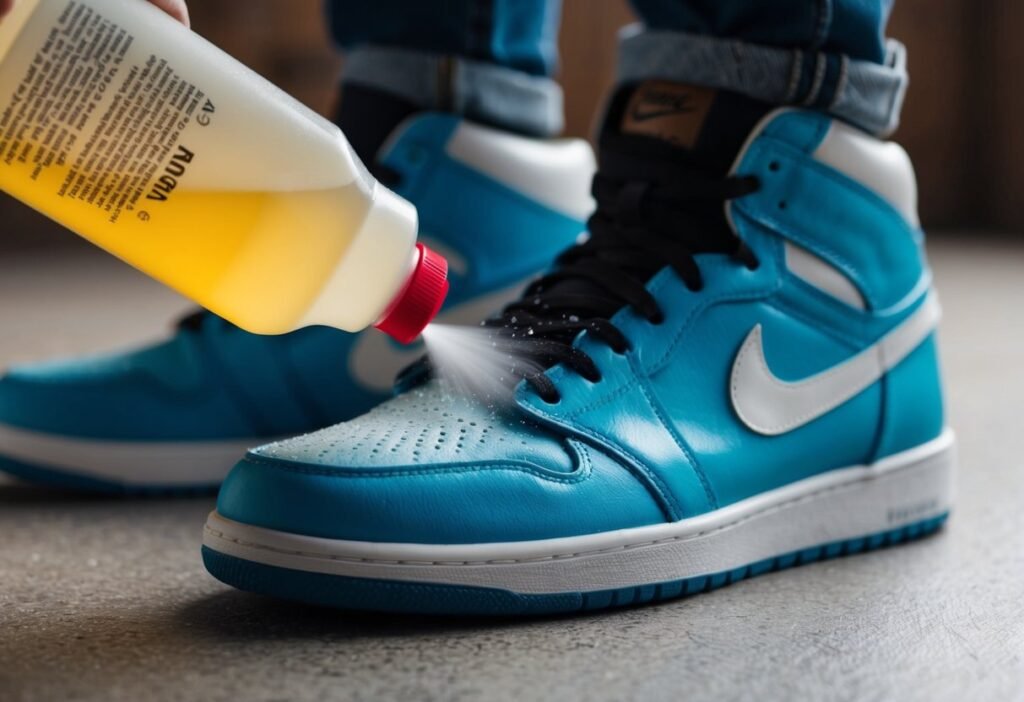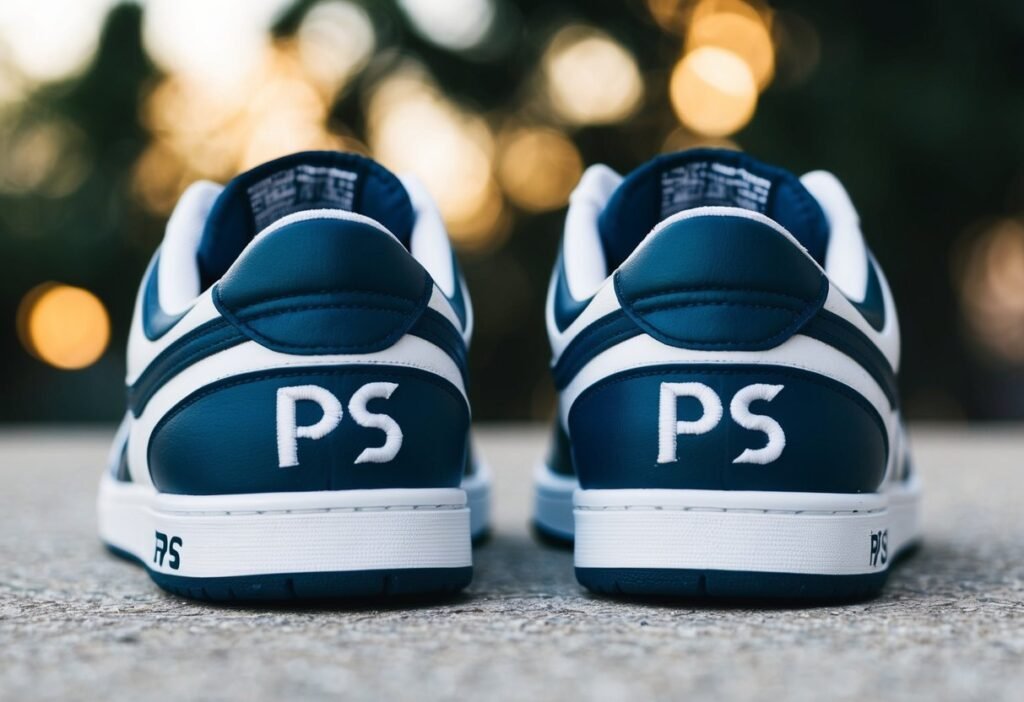Does Etsy Sell Fake Shoes? Tips to Identify Genuine Footwear
Etsy, known for its unique handmade and vintage items, has become a go-to marketplace for shoppers seeking one-of-a-kind products. Yet, as its popularity grows, so do concerns about the authenticity of some items, particularly shoes. With countless sellers and a vast array of products, the question arises: does Etsy sell fake shoes?
Shoppers want to ensure they’re getting genuine articles, especially when it comes to footwear. Authenticity isn’t just about brand names; it’s also about quality and craftsmanship. This article delves into the prevalence of counterfeit shoes on Etsy and offers tips on how to spot fakes, ensuring buyers make informed decisions.
Key Takeaways
- Etsy Marketplace Overview: Etsy is a platform focused on handmade, vintage, and unique items sold by individual sellers, but buyers should be cautious about product authenticity.
- Prevalence of Counterfeits: Counterfeit products are common across many online marketplaces, including Etsy; items like shoes, luxury goods, and electronics are often faked.
- Etsy’s Anti-Fraud Measures: Etsy has policies and enforcement mechanisms to combat counterfeit goods, including seller guidelines and a system for reporting fake items.
- Customer Experience: Buyer reviews on Etsy about shoe purchases vary, with some praising quality custom designs and others complaining about receiving counterfeit products.
- Identifying Authentic Shoes: To spot fake shoes on Etsy, buyers should scrutinize listings, check for consistent branding and quality, compare prices, and read detailed customer reviews.
- Tips for Buying Shoes: Verify seller credentials, review detailed product descriptions and images, and prioritize sellers with strong, positive feedback to ensure authentic purchases.
Understanding Etsy’s Marketplace
Etsy is an e-commerce platform specializing in unique handmade, vintage, and craft supply items. Launched in 2005, Etsy provides a venue for individual artisans, crafters, and collectors to sell their products. Unlike other retail websites, Etsy emphasizes creativity and small-business operations, allowing sellers to showcase their unique products directly to consumers.
How Does Etsy Operate?
Etsy’s marketplace operates through a decentralized model where sellers manage their own shops. Each seller creates product listings, decides on pricing, and handles shipping logistics. Buyers can search for items, compare options, and purchase directly from the seller. Etsy charges a listing fee of $0.20 per item and takes a 5% transaction fee on sales. Additionally, Etsy provides tools for payment processing and shop management, ensuring a streamlined experience for both sellers and buyers.
Etsy maintains policies to protect intellectual property and prohibit counterfeit goods. Sellers must comply with these rules, adhering to guidelines that prevent the sale of fake or misrepresented items. However, as Etsy’s marketplace continues to grow, the responsibility largely falls on buyers to ensure product authenticity by researching sellers and examining customer reviews.
The Prevalence of Fake Products Online

Challenges in Online Marketplaces
Fake products plague many online marketplaces. Counterfeit items harm consumer trust, affect brand reputation, and, in some cases, pose health risks. Platforms like Etsy, eBay, and Amazon face high volumes of listings daily, making it challenging to monitor each one for authenticity. While these platforms implement policies and algorithms to detect fraudulent listings, determined counterfeiters often find ways to bypass these measures.
Decentralized marketplaces compound these challenges. Individual sellers run their shops, making centralized control and verification more difficult. Buyers must scrutinize listings, evaluate seller histories, and read customer reviews.
Common Fake Items Sold Online
Counterfeit items range broadly across categories but often include high-demand products where price differentials are substantial. Common fake products include:
- Luxury Goods: Items like handbags, shoes, and watches from brands such as Gucci, Louis Vuitton, and Rolex frequently face counterfeiting.
- Electronics: Gadgets and accessories, including smartphones, headphones, and chargers, often get counterfeited, leading to safety concerns.
- Health and Beauty Products: Cosmetics, skincare items, and supplements are common targets, which can pose significant health risks due to unregulated ingredients.
- Clothing and Accessories: Branded apparel and accessories from companies like Nike and Adidas are popular among counterfeiters.
Counterfeit items often feature misaligned logos, subpar materials, and significant price differences from genuine counterparts. Recognizing these signs helps buyers avoid fraudulent products online.
Evaluating Etsy’s Policies on Counterfeit Goods

Etsy’s Stance on Handmade and Vintage Items
Etsy places a strong emphasis on the authenticity of handmade and vintage items. Their marketplace policies require sellers to list items accurately, focusing on the originality of handmade goods and the age of vintage pieces. Etsy defines “handmade” as items crafted by the seller or designed with minor contribution from outside help. Vintage items must be at least 20 years old to qualify. Accurate listing descriptions and compliance with these criteria are mandatory, ensuring buyers receive genuine products that meet Etsy’s standards.
How Etsy Deals With Counterfeit Reports
Etsy actively monitors and responds to counterfeit reports through its comprehensive enforcement process. When buyers or rights holders report suspected counterfeit goods, Etsy investigates the claim, which can lead to item removal and seller suspension if verified. The platform offers a Notice of Claimed Infringement (NOCI) form to facilitate the reporting process. Sellers found repeatedly violating Etsy’s policies face penalties, including account deactivation. By implementing these measures, Etsy strives to maintain a marketplace rooted in trust and authenticity.
Customer Experiences and Reviews
Customers share mixed experiences on Etsy, particularly with shoe purchases. Positive testimonials highlight unique, high-quality handcrafted shoes often found in niches such as vegan materials or custom designs. For example, some buyers praise sellers for excellent communication and timely delivery of customized shoes.
Negative reviews, however, cite instances of counterfeit products that differ significantly from the listed descriptions. Common complaints include poor material quality and inaccurate sizing. A recurring issue is the difficulty some buyers face in getting refunds or satisfactory resolutions from sellers when counterfeit shoes are received.
How to Identify Fake Shoes
Recognizing fake shoes on Etsy requires meticulous examination of listings and feedback. Authentic shoes typically have consistent branding, no spelling errors, and accurate product descriptions. Flawed logos, unusual stitching patterns, or materials that don’t match known brand standards can indicate counterfeits.
Price disparities also serve as red flags. Genuine branded shoes sold significantly below market value often raise suspicion. Trustworthy sellers provide detailed listings with multiple high-resolution images from various angles. Potential buyers should cross-reference these details with the brand’s official images and descriptions.
Reading customer reviews further aids in detecting fakes. Reviews that consistently point out discrepancies, such as subpar craftsmanship or mismatched logos, provide insight into the product’s authenticity. Shopping from established sellers with a track record of positive feedback helps mitigate risks.
Tips for Buying Authentic Shoes on Etsy

Verifying Seller Credentials
Checking the seller’s credentials ensures product authenticity. First, examine the seller’s profile for detailed information about their business and experience. Look for an “About” section describing their background, including the origin of the shoes they sell. Second, check for professional images and detailed descriptions in listings. Authentic sellers use high-quality images showing multiple angles and close-ups of the shoes. Third, verify their social media presence if available. Reputable sellers often maintain active profiles on platforms like Instagram or Facebook to showcase their products and engage with customers.
Understanding Etsy Reviews
Examining Etsy reviews provides insights into product quality and seller reliability. Start by reading multiple reviews to get a balanced view of other buyers’ experiences. Pay attention to reviews mentioning the shoes’ quality, fit, and durability. Second, identify patterns in the feedback. Consistent complaints about issues like inaccurate sizing or poor materials can indicate potential problems with authenticity. Third, look for reviews including photos. Visual evidence from buyers helps verify the actual product matches the listing. Lastly, prioritize sellers with a high volume of positive reviews, as this typically reflects credibility and trustworthiness.

Etsy remains a popular platform for unique, handcrafted, and vintage items, including shoes. While the risk of encountering counterfeit products exists, buyers can take proactive steps to ensure authenticity. By scrutinizing seller profiles, examining detailed listings, and leveraging customer reviews, shoppers can make informed decisions. Consistent branding, accurate descriptions, and positive feedback are key indicators of genuine products. Prioritizing reputable sellers with a strong track record enhances the likelihood of a satisfying purchase experience. With careful research and vigilance, buyers can confidently navigate Etsy’s marketplace and enjoy high-quality, authentic shoes.
Frequently Asked Questions
What makes Etsy different from other online marketplaces?
Etsy focuses on authentic handmade and vintage items, allowing individual artisans and collectors to sell directly to consumers. This emphasis on unique and genuine products sets it apart from other marketplaces.
Are there counterfeit products on Etsy?
Yes, there are instances of counterfeit products on Etsy, particularly as the platform gains popularity. Buyers need to be cautious and research sellers and feedback to identify genuine items.
How can I identify fake shoes on Etsy?
To identify fake shoes, examine listings for consistent branding and accurate descriptions. Look for feedback, check the seller’s credentials, and be wary of significant price disparities. Flawed logos and unusual materials can also indicate counterfeits.
What should I look for in Etsy reviews?
Look for multiple reviews, identify patterns in feedback, and prioritize those with photos. Sellers with a high volume of positive reviews are more likely to be reliable and offer quality products.
Does Etsy charge fees for selling items?
Yes, Etsy charges fees per listing and transaction. It operates through a decentralized model where individual sellers manage their own shops and listings.
How can I ensure I buy authentic shoes on Etsy?
Verify seller credentials by examining profiles, looking for professional images and detailed descriptions, and checking for a social media presence. Reading multiple reviews with photos and patterns in feedback also helps ensure authenticity.
What are the common complaints about shoes on Etsy?
Common complaints include counterfeit products, poor quality, and inaccurate sizing. Reading detailed reviews and researching sellers can help avoid these issues.








